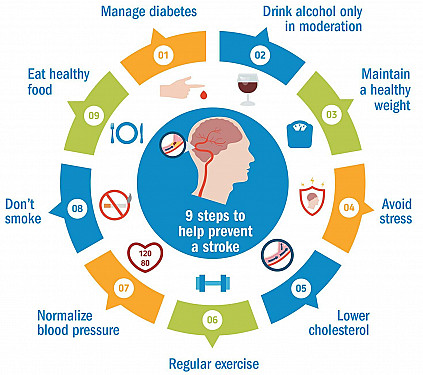Plant-based diet quality linked to lower stroke risk
News briefs

Plant-based diets not only ward off heart disease; they also can ward off strokes. But it depends on the quality of the diet. A Harvard study published online March 10, 2021, by the journal Neurology evaluated the self-reported health data of about 210,000 healthy men and women who periodically answered diet questionnaires over 25 years. Compared with people who ate unhealthy plant-based foods (such as white bread, pizza, potatoes, and foods with added sugar), people who ate healthy plant-based foods (leafy greens, whole grains, and beans) had up to a 10% reduction in stroke risk, especially ischemic strokes, which, like heart attacks, are caused by a blockage of blood flow. A healthy plant-based diet is just part of the approach to preventing a stroke. This approach should also include lots of aerobic exercise to get your heart and lungs pumping; adequate sleep; stress reduction; blood pressure, blood sugar, and weight control; limited alcohol intake if you drink; and not smoking.
Image: © fcafotodigital/Getty Images
About the Author

Heidi Godman, Managing Director
Disclaimer:
As a service to our readers, Harvard Health Publishing provides access to our library of archived content. Please note the date of last review or update on all articles.
No content on this site, regardless of date, should ever be used as a substitute for direct medical advice from your doctor or other qualified clinician.















